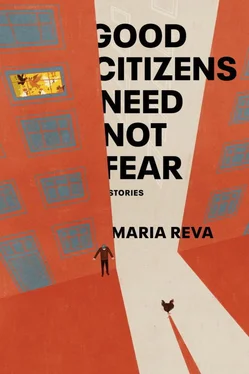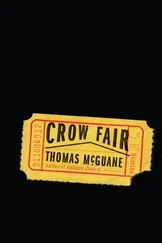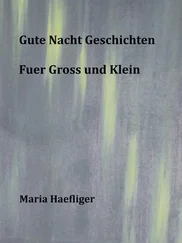Maria Reva - Good Citizens Need Not Fear - Stories
Здесь есть возможность читать онлайн «Maria Reva - Good Citizens Need Not Fear - Stories» весь текст электронной книги совершенно бесплатно (целиком полную версию без сокращений). В некоторых случаях можно слушать аудио, скачать через торрент в формате fb2 и присутствует краткое содержание. Город: New York, Год выпуска: 2020, ISBN: 2020, Издательство: Doubleday, Жанр: Современная проза, humor_satire, на английском языке. Описание произведения, (предисловие) а так же отзывы посетителей доступны на портале библиотеки ЛибКат.
- Название:Good Citizens Need Not Fear: Stories
- Автор:
- Издательство:Doubleday
- Жанр:
- Год:2020
- Город:New York
- ISBN:978-0-38554-529-7
- Рейтинг книги:3 / 5. Голосов: 1
-
Избранное:Добавить в избранное
- Отзывы:
-
Ваша оценка:
- 60
- 1
- 2
- 3
- 4
- 5
Good Citizens Need Not Fear: Stories: краткое содержание, описание и аннотация
Предлагаем к чтению аннотацию, описание, краткое содержание или предисловие (зависит от того, что написал сам автор книги «Good Citizens Need Not Fear: Stories»). Если вы не нашли необходимую информацию о книге — напишите в комментариях, мы постараемся отыскать её.
Good Citizens Need Not Fear: Stories — читать онлайн бесплатно полную книгу (весь текст) целиком
Ниже представлен текст книги, разбитый по страницам. Система сохранения места последней прочитанной страницы, позволяет с удобством читать онлайн бесплатно книгу «Good Citizens Need Not Fear: Stories», без необходимости каждый раз заново искать на чём Вы остановились. Поставьте закладку, и сможете в любой момент перейти на страницу, на которой закончили чтение.
Интервал:
Закладка:
Those who mourn quietest, mourn deepest.
When the grandson dies, the rest of the family squabbles over his estate, but the grandparents vow not to get involved. (Not all the grandparents—just the maternal set, Pyotr Palashkin and Lila Palashkina, the last of the family to live in glum little Kirovka, while the rest have escaped.) Considering the shedload of money the grandson earned abroad, doing who knows what, he must have written a will, as people abroad do. The grandparents think: The rest of the family will surely respect his wishes.
When the grandson’s parents inherit his apartment and car, Pyotr and Lila don’t grumble that these parents already own a two-room and don’t drive.
When the grandson’s girlfriend inherits the diamond ring he kept in his lockbox, it would be rude to remind her that he hadn’t proposed yet, might’ve changed his mind.
The grandparents don’t mention that they practically raised the grandson while his parents worked. He was the first grandchild, the only one they could help care for before the family dispersed. The child was born joyless, and they would try and try to cheer him up by pointing out small miracles: the first crocus bursting through snow; the newspaper photo of the crocodile who wears his turtle friend as a hat; the eerie curling of one’s fingers when the inner wrist is pressed. If the grandparents couldn’t make the boy happy, at least they kept him clean, fed—alive.
Everyone in the family is poor, but the grandparents are the poorest. When the Union fell and inflation spiked, their lifelong savings dissolved along with their peaceful retirement. Instead of lounging on his bench in front of 1933 Ivansk—the bench now swallowed by a sea of pilgrims—Pyotr sits with Lila on a pair of children’s foldout chairs at the train station, selling bone albums to tourists on layover. They greet the tourists in a dim underpass that reeks of urine, the bone records spread over a checkered tablecloth on the concrete. Other elderly citizens sell Soviet army regalia, reprinted propaganda posters, painted wooden spoons. To procure the X-rays, the grandparents have to dig through the dumpsters behind the polyclinic, risking infection and grisly new diseases. Pyotr and Lila got into the business when a neighbor, Milena Markivna, posted an ad in the lobby offering her bone music equipment for a reasonable price. Included were a modified gramophone and sixteen vinyl records. The grandparents were overwhelmed with joy the first time they held the albums: Red Poppies! Jolly Fellows! Such ensembles used to perform on television all the time, with their smart suits or matching knit sweaters, bobbing in sync, abstaining from flashy dance. Pyotr and Lila couldn’t hide their disappointment when Milena told them the vinyl sleeves and labels had been a disguise, that the real music only came through when you lowered the needle.
The record player turned out to be in poor condition, likely kept in the damp for years, and the volume knob broke at first touch. It’s still stuck to one level: blaring. The grandparents have to live with Alice Cooper, KISS, Black Sabbath at full growl. It wouldn’t be so bad if they couldn’t understand the words, but Pyotr and Lila are retired English teachers.
“GO TO HELL,” the music advises. “LIE DOWN AND DIE.”
Also, “YOU SHOULD HAVE NEVER HAPPENED.”
But, of small comfort: “I’LL MISS YOU WHEN YOU’RE GONE.”
The family doesn’t think the situation is so bad. After all, the grandparents get to listen to music all day, and make money doing it. Meanwhile the others have to drive trucks across the country, bend over microscopes at catheter assembly lines, check fares on packed trams, hawk bread out of moving trains. And those are just the day jobs.
“Grandfather has a tumor,” Lila likes to remind the family over the phone, whenever they get smug. The tumor sits atop his bladder.
“Benign,” they snap back.
“But growing, crowding out his organs,” she tells them. “Even if very slowly, it will kill him.”
“So get it removed!” The family has been pleading for this to happen for years.
But the situation isn’t as simple as that. The grandparents can’t get the tumor removed because as long as it exists, they’re guaranteed a monthly pelvic X-ray. The shape of the spine and hips in the X-ray reminds the tourists of an electric guitar, and they snap that bone album up right away. The tumor is what feeds the grandparents.
“Why not just make copies of the same X-ray?” This, the snarky uncle.
“Don’t think we haven’t tried,” Lila says. But no one in town will make copies. They’ve even asked the polyclinic receptionist for extras, and the woman in turn asked what they thought she was running, a medical facility or an X-ray press.
Finally the relatives sort out what the grandparents will inherit. Something the grandson must have treasured very much, they promise. They send one of the teenagers over to deliver it. A head taller than the last time the grandparents saw him, and newly handsome, the teenager carries a clear-lidded tin box repurposed from Belgian chocolates. With his stiff posture, bearing the gift in his arms, he looks like a suitor. He won’t come inside, though, says he has to rush off to catch the next train back to his city, a train that doesn’t stop here anymore, not fully—it only slows to a crawl along the platform because the town no longer deserves more than a minute of the train’s time.
Since the major items have already been allotted, the grandparents aren’t expecting an enormous or life-changing gift. They’d be happy with a keepsake, however small.
The tin box in the teenager’s hands has a pinprick hole. Lila takes the box and peers into it, her mouth already set in a smile.
Inside the box is, well, the grandparents aren’t sure what. A silver chain attached to an oblong pile of brown rocks, sitting on a piece of newspaper. It’s roughly the size and shape of a stool. It looks much like the samples the grandson had to produce in his childhood, to be scooped into a matchbox—by the grandmother, who else?—then wrapped in newspaper, then a plastic bag, and submitted to the school nurse, who inspected it for worms. Each looming inspection would make the boy nervous, thus constipated—stage fright, Pyotr called it—and Lila would often have to produce the sample herself. The rest of the family liked to joke that the grandson would one day return the favor.
Is that what the so-called gift is about?
The most disgusting thing about the brown pile: two hairs sticking out of one end.
The grandparents look up from the box, but the teenager has already run off.
The pair of hairs twitches.
In shock, Lila almost drops the box. Now the entire pile lumbers from one side of the box to the other, toward its own reflection.
The grandparents draw their faces closer. The rocks, they realize, are glued to an insect. A giant wingless roach, by the looks of it. The hairs are its antennae.
Is it supposed to be a pet?
An art project?
Just the kind of thing the grandson would waste his money on.
The rest of the family may not know it yet, but Pyotr and Lila have stopped talking to them. If one of the relatives were to call, the grandparents wouldn’t answer.
The grandparents keep up with the bone records. Keep ignoring the doctor’s pleas to remove the tumor. The doctor brings props to the radiology room each month, to demonstrate the tumor’s growth.
He holds up a pea. “Where we started.”
He holds up a glossy chestnut. “Where we’re at.”
He holds up a lemon. “Where we’ll be in a few short years.” Not the regular type of lemon, pale and pitted, Lila notes. This one is dark yellow, taut-bellied. Likely a Meyer, from a pricey store.
Читать дальшеИнтервал:
Закладка:
Похожие книги на «Good Citizens Need Not Fear: Stories»
Представляем Вашему вниманию похожие книги на «Good Citizens Need Not Fear: Stories» списком для выбора. Мы отобрали схожую по названию и смыслу литературу в надежде предоставить читателям больше вариантов отыскать новые, интересные, ещё непрочитанные произведения.
Обсуждение, отзывы о книге «Good Citizens Need Not Fear: Stories» и просто собственные мнения читателей. Оставьте ваши комментарии, напишите, что Вы думаете о произведении, его смысле или главных героях. Укажите что конкретно понравилось, а что нет, и почему Вы так считаете.












